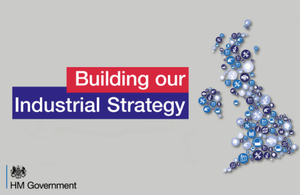A survey carried out by CLM Fleet Management has suggested that UK drivers are less likely to purchase diesel cars, following tax changes made by Chancellor Philip Hammond in the recent Autumn Budget.
 The Chancellor announced that, for new diesel vehicles registered after 1 April 2018 that do not meet the Real Driving Emissions 2 (RDE2) standard, a supplement will be charged on their First Year Rate, to the effect of moving up by one Vehicle Excise Duty (VED) band.
The Chancellor announced that, for new diesel vehicles registered after 1 April 2018 that do not meet the Real Driving Emissions 2 (RDE2) standard, a supplement will be charged on their First Year Rate, to the effect of moving up by one Vehicle Excise Duty (VED) band.
After the first year, vehicles with zero emissions will be exempt from the standard rate of vehicle tax, and other petrol or diesel vehicles will pay a standard rate of £140 a year. An additional rate will be added to the vehicle tax for all new vehicles with a list price of over £40,000.
59% of survey respondents stated that they would be less likely to purchase a diesel car as a result of the increase in VED from April 2018.
The Chancellor also announced that the diesel supplement will be increased from 3% to 4% from 6 April 2018, but will be removed altogether for diesel cars which are certified to the RDE2 standard.
The CLM survey also quizzed respondents over this increase: 62% said that the change will not impact upon their buying decision, with a further 17% stating that they would be less likely to choose a diesel car.
Commenting on the findings, John Lawrence, Managing Director of CLM Fleet Management, said: ‘We have already seen a steep decline in diesel sales this year as drivers have reacted to negative publicity around poor air quality and diesels. And these latest announcements look set to accelerate that process.’




 The white paper sets out a long-term vision for how the UK can ‘build on its economic strengths’, improve its productivity performance, embrace technological change and increase UK workers’ earning power.
The white paper sets out a long-term vision for how the UK can ‘build on its economic strengths’, improve its productivity performance, embrace technological change and increase UK workers’ earning power.
 The data showed that, between May and July of this year, only 48,000 people began an apprenticeship – a significant fall when compared to the same period in 2016, when 117,000 individuals entered into an apprenticeship.
The data showed that, between May and July of this year, only 48,000 people began an apprenticeship – a significant fall when compared to the same period in 2016, when 117,000 individuals entered into an apprenticeship.
 The Resolution Foundation also stated that Chancellor Philip Hammond is faced with ‘grim economic forecasts’, following the recent publication of a fiscal and economic outlook by the Office for Budget Responsibility (OBR).
The Resolution Foundation also stated that Chancellor Philip Hammond is faced with ‘grim economic forecasts’, following the recent publication of a fiscal and economic outlook by the Office for Budget Responsibility (OBR).
 Following the release of new figures that revealed a rise in government borrowing in October, Mr Hammond faces an uphill battle in attempting to balance the books against a weakening economic backdrop.
Following the release of new figures that revealed a rise in government borrowing in October, Mr Hammond faces an uphill battle in attempting to balance the books against a weakening economic backdrop.
 The new GDPR is set to come into effect on 25 May 2018, and will strengthen the obligations on all businesses in regard to the safeguarding of individuals’ personal information. Businesses have been advised to review their data privacy and security practices ahead of the implementation of the GDPR.
The new GDPR is set to come into effect on 25 May 2018, and will strengthen the obligations on all businesses in regard to the safeguarding of individuals’ personal information. Businesses have been advised to review their data privacy and security practices ahead of the implementation of the GDPR.
 The warning came as a survey carried out by the FSB found that VAT-registered small business owners spend an average of 44 hours each year managing VAT administration.
The warning came as a survey carried out by the FSB found that VAT-registered small business owners spend an average of 44 hours each year managing VAT administration.
 Meanwhile, wage growth figures outlined that workers’ earnings, excluding bonuses, fell by 0.5% in real terms, when taking inflation into account. This represents seven months of negative pay growth.
Meanwhile, wage growth figures outlined that workers’ earnings, excluding bonuses, fell by 0.5% in real terms, when taking inflation into account. This represents seven months of negative pay growth.